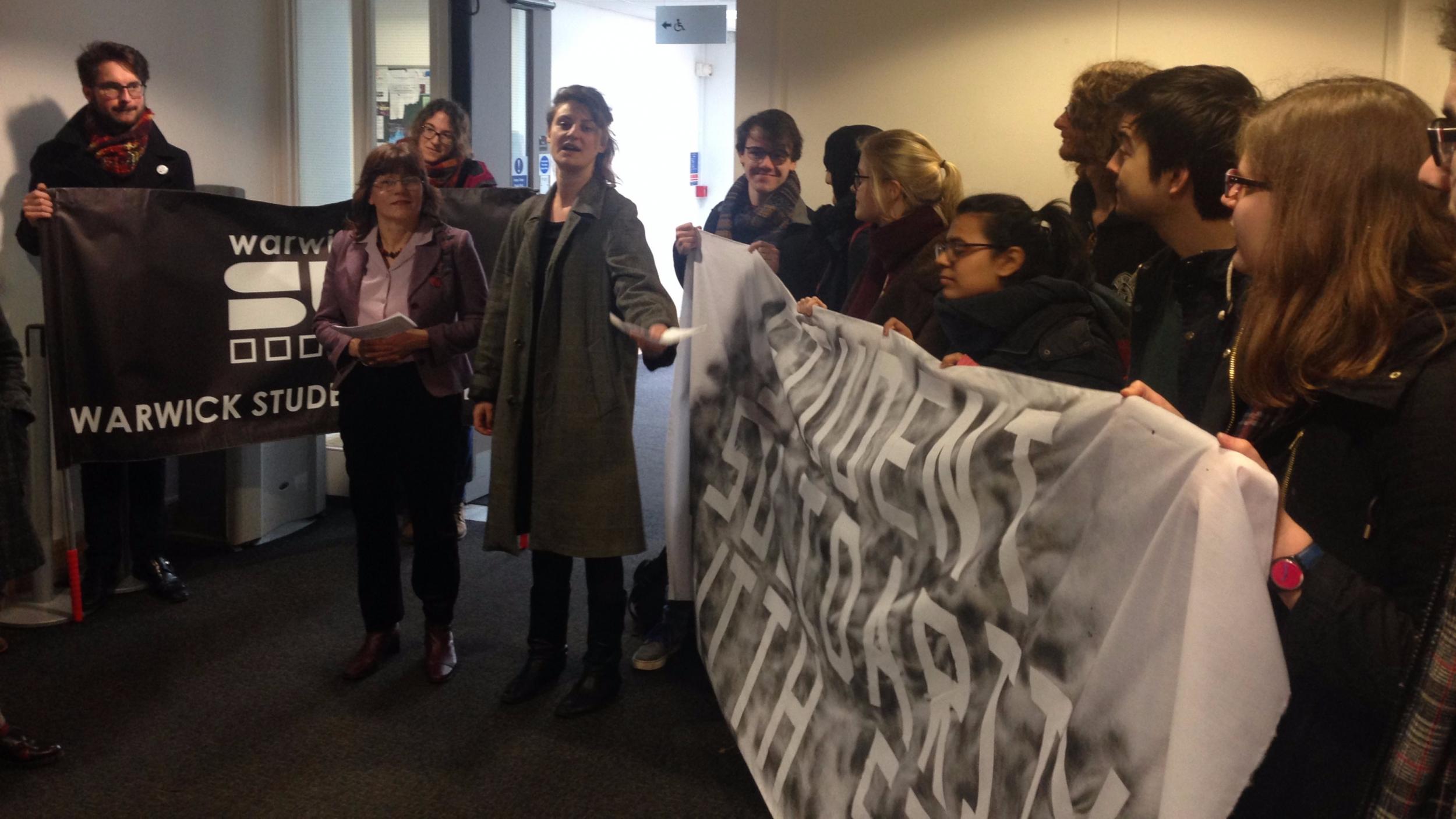Warwick University staff praised by students for condemning Government’s green paper and Prevent scheme
Staff vote that university should do 'no more than the absolute minimum' to satisfy requirements of Prevent

Your support helps us to tell the story
From reproductive rights to climate change to Big Tech, The Independent is on the ground when the story is developing. Whether it's investigating the financials of Elon Musk's pro-Trump PAC or producing our latest documentary, 'The A Word', which shines a light on the American women fighting for reproductive rights, we know how important it is to parse out the facts from the messaging.
At such a critical moment in US history, we need reporters on the ground. Your donation allows us to keep sending journalists to speak to both sides of the story.
The Independent is trusted by Americans across the entire political spectrum. And unlike many other quality news outlets, we choose not to lock Americans out of our reporting and analysis with paywalls. We believe quality journalism should be available to everyone, paid for by those who can afford it.
Your support makes all the difference.Students at the University of Warwick have praised the staff’s decision to condemn the Government’s higher education green paper and Prevent scheme having passed two motions after a debate.
Activists with the Warwick for Free Education movement greeted staff with cheers and applause outside “a very important assembly” where two motions opposing the Government’s measures were passed “with resounding majorities.”
The students said: “We have been working alongside staff on these issues for months now, and we look forward to continuing the campaign with them in the future.”
In the democratic forum called by members of administrative and academic staff, known as the Assembly, assistant professor in modern British history, Dr Laura Schwartz, referred to the green paper as being “potentially the death knell of public higher education in this country,” and said it would directly threaten the university’s core educational mission.
The ‘Teaching Excellence Framework’ (TEF) was said to have “been torn apart” by Warwick’s own consultation submission, and labelled as being “potentially damaging to the international reputation” of the university.
Complaints against the green paper included the possibility of academic rigor being sacrificed in order to promote higher student satisfaction, and the burdening of students with unsustainable levels of debt due to soaring tuition fees.
The moment staff broke the news to students:
When it came to the second motion regarding Prevent - the Government’s controversial program which requires higher education staff to report students they believed to be at risk of ‘radicalisation’ - the Assembly discussed how this had already led to the disproportionate and discriminatory targeting of Muslim and black and minority staff and students.
The Assembly noted the widespread opposition to the policy on campus, with hundreds of university staff and students having signed an open letter to the vice-chancellor in just over three weeks. The Assembly resolved to make sure the university did “no more than the absolute minimum” to satisfy the requirements of Prevent.
Dr Justine Mercer - associate professor in the Centre for Education Studies - said: “The Prevent strategy...damages our community by fostering an environment of surveillance, paranoia, and racism.
“It encourages the continual monitoring of both staff and students. It destroys the trust needed for a safe and supportive learning environment.”
The mood in the Assembly was described as “overwhelmingly supportive” of both motions with staff from across the university noting the ways in which the changes threaten the university’s public mission, therefore, undermining academic freedom.
Having left the assembly, Both Dr Schwartz and Dr Mercer were greeted by students who had gathered outside. Both said the successful Assembly was “an important step in support for further action, locally and nationally.”
Warwick for Free Education spokesperson, Hope Worsdale, said: “Students are delighted by the outcome of the Assembly and will continue in their actions, alongside staff, to campaign for a free and progressive education system.”
Both motions were said to have received “resounding support”; the green paper motion was passed by 98 people in favour, eight against, and eleven abstentions, while the Prevent motion was passed by 96 in favour, five against, and 13 abstentions.
The university said motions from Assembly go to the institution’s Senate Steering Committee. Both of Friday’s motions will be considered there.
Join our commenting forum
Join thought-provoking conversations, follow other Independent readers and see their replies
Comments